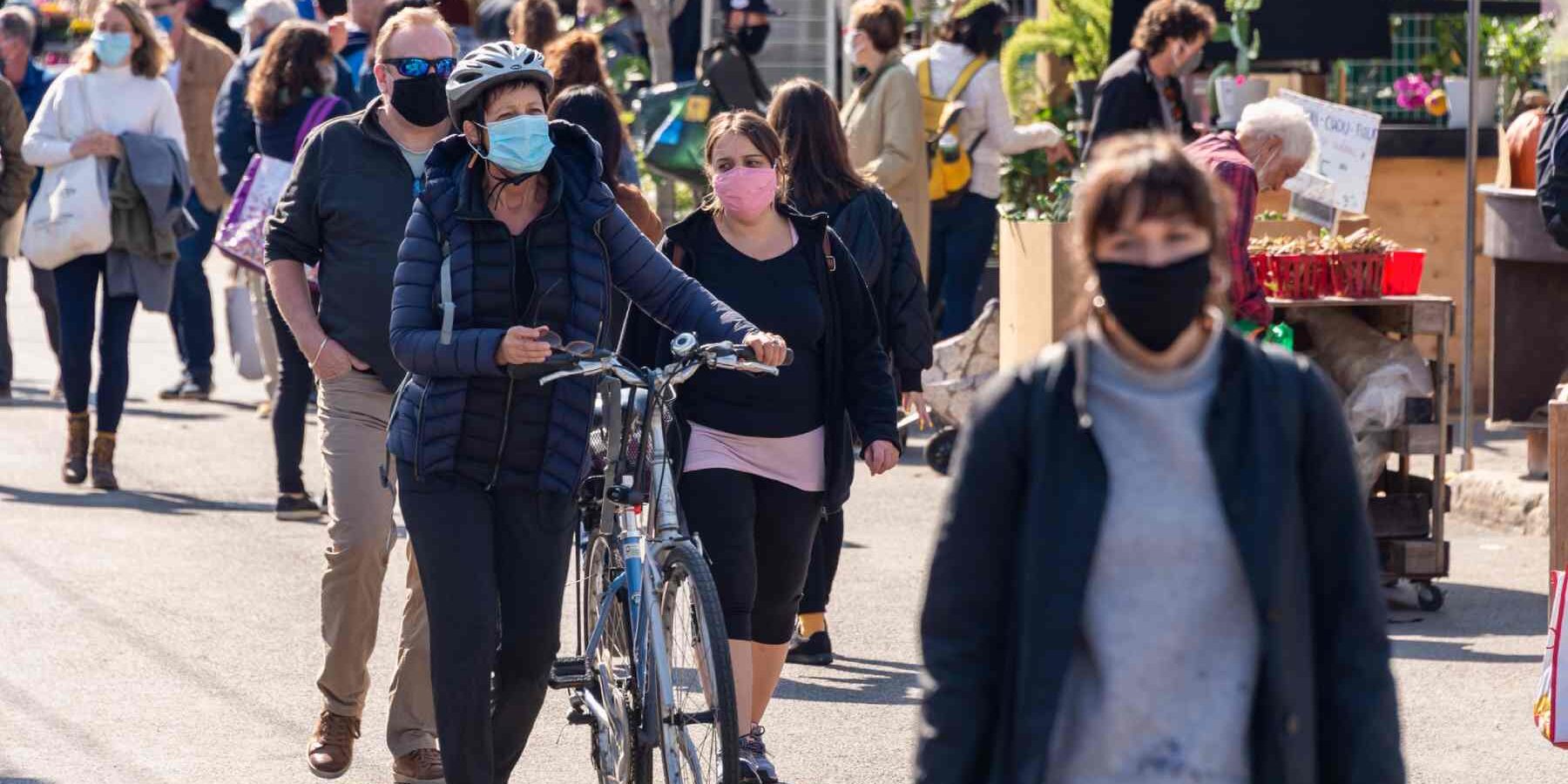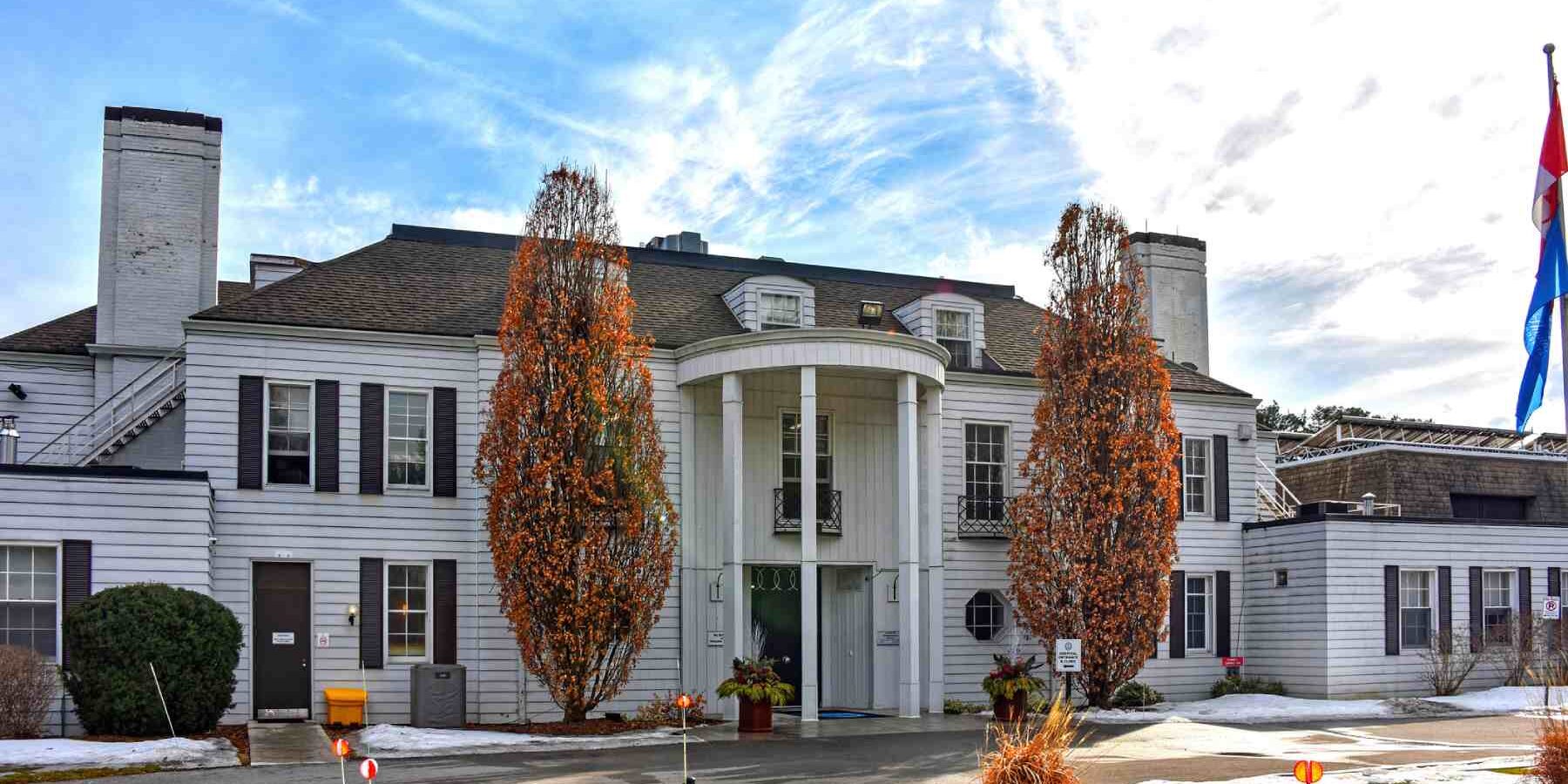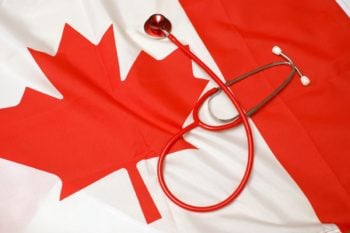
What Foreigners and Visitors to Canada Need to Know

While the Canadian government provides free, universal healthcare to citizens and residents, visitors, temporary workers, and expats aren’t automatically covered. Even for eligible residents, public healthcare has limitations, often prompting the need for private insurance to cover additional costs.
If you’re planning to visit or move to Canada, it’s essential to understand how healthcare in Canada works, what it covers, and what expenses you might face. This article provides the key information you need, including how to access care and what costs you might incur.
The Canadian healthcare system is often praised as one of the best in the world, yet to outsiders, it remains a bit of a mystery. Many people, particularly Americans, assume that healthcare in Canada is entirely free and accessible to visitors. However, the reality is more complex and can be costly for non-citizens.
While the Canadian government provides free, universal healthcare to citizens and residents, visitors, temporary workers, and expats aren’t automatically covered. Even for eligible residents, public healthcare has limitations, often prompting the need for private insurance to cover additional costs.
If you’re planning to visit or move to Canada, it’s essential to understand how healthcare in Canada works, what it covers, and what expenses you might face. This article provides the key information you need, including how to access care and what costs you might incur.
An Overview of the Canadian Healthcare System
Canada's healthcare system, known as Medicare, is a publicly funded model that provides universal coverage to all Canadian citizens and permanent residents.
The system was established in 1984 and is governed by the Canada Health Act, which ensures that all residents, regardless of income or location, have "reasonable access to medically necessary hospital and physician services" without any out-of-pocket costs.
However, the Act does not define "medically necessary." Instead, it allows provinces and territories to determine this in collaboration with local medical groups and physician colleges. As a result, the scope of coverage, services, efficiency, funding, and staffing can vary across different regions of Canada.
Each province and territory administers its healthcare plan according to five principles outlined in the Canada Health Act:
- Public administration: Healthcare must be managed on a nonprofit basis
- Comprehensiveness: Provincial health plans must cover all medically necessary services
- Universality: All residents in Canada must have access to public healthcare
- Portability: Residents must be covered while traveling within Canada and, with some limitations, while outside the country
- Accessibility: Access to health services must be reasonable, uniform, and free of financial or other barriers
Read More: Health Insurance in Canada
Challenges Facing Canada’s Healthcare System
Although Medicare is a cornerstone of Canada's identity and is often regarded as one of the best healthcare systems in the world, it has faced increasing pressures in recent years. The COVID-19 pandemic, an aging population, and political resistance to reform have strained the system.
In 2024, the Commonwealth Fund, which evaluates healthcare systems based on access, efficiency, equity, and health outcomes, ranked Canada seventh worldwide. Similarly, the U.S. News and World Report ranked Canada's public healthcare system seventh globally.

While still highly regarded, these rankings reflect a decline from previous years, when Canada’s Medicare system was often seen as one of the strongest in the world.
Although Medicare covers essential services such as hospital care and doctor visits, about two-thirds of Canadians rely on a private health plan to cover additional costs, such as prescriptions, dental care, and private hospital rooms. Private coverage can also help reduce long wait times for non-emergency treatments.
Does Canada Have Free Healthcare?
While Canada's public healthcare system provides essential services with no direct costs at the point of care for citizens and permanent residents, it is not truly "free." Instead, it is funded by taxes collected by the federal and provincial governments.
Additionally, some services are not covered by Medicare and require out-of-pocket payment or supplemental coverage. These services include:
- Outpatient prescription drugs
- Vision care
- Dental care
- Ambulance services
- Home care
- Midwifery
- Physiotherapy
- Mental healthcare
However, provinces and territories offer programs to help certain populations, such as seniors, children, and those on social assistance, with the cost of prescription medications. Some provinces also provide additional dental and vision care coverage for certain groups, though this varies by region.
Many Canadians rely on private insurance to cover additional services, particularly prescription drugs and dental care. While similar dual coverage models exist in countries like the UK, Australia, and Germany, Canada stands out due to the significant role private insurance plays in filling these gaps. This system is often cited as a defining feature of Canada's healthcare model.
Read More: Countries With Universal Healthcare
Public Healthcare Funding and Expenditure
The Canada Health Transfer (CHT) provides federal funding to the provinces and territories on a per capita basis, ensuring that each region receives equal funding for its population. However, this contribution accounts for only about 22% of total healthcare funding, with the remaining 78% coming from provincial and territorial taxes.
In 2023, Canada spent about 12% of its GDP on healthcare, a decrease from the higher spending levels during the 2020 pandemic. While some critics express concerns over rising healthcare costs, Canada’s healthcare spending is still comparable to other countries with strong universal health systems and significantly lower than that of the United States.
The Pros and Cons of the Canadian Healthcare System
Canada's Medicare system has many strengths, but like any system, it has its challenges. Here's an overview of the pros and cons:
The Pros
- Free at the point of service: One of the biggest advantages of Canada's healthcare system is that citizens and residents can receive medical care without paying at the time of treatment. This includes all services deemed necessary by the provincial or territorial healthcare system.
- Universal access: Healthcare is available to all Canadian residents, no matter where they live, whether in big cities or remote rural areas. This ensures everyone has access to medical care, regardless of income or location.
- Emergency responsiveness: Canada's healthcare system is designed to respond quickly to medical emergencies. Whether it's a heart attack, stroke, broken bone, or car accident, people can expect timely and competent care when they need it most.
- Portability: Even though each province or territory has its own healthcare plan, Canadians can access healthcare anywhere in the country. For example, someone with a health card from Nova Scotia can receive care in British Columbia, whether they are visiting or living there temporarily.

The Cons
Despite its strengths, Canada's healthcare system faces several challenges that affect how well it works and how easy it is to access care:
- Long wait times: One of the system's biggest drawbacks is the long wait times for non-emergency medical procedures. For elective surgeries, such as knee replacements or gallbladder surgeries, patients may have to wait months or even years to receive treatment.
- Brain drain: Some provinces lack enough private healthcare options, leading to burnout and dissatisfaction among healthcare professionals. As a result, many doctors, nurses, and specialists leave Canada for better-paying jobs in other provinces or the United States.
- Shortage of primary care doctors: Primary care doctors are essential to the healthcare system, but due to underfunding and burnout, there is a shortage of family doctors in many areas. As a result, many Canadians must wait for months, or even up to a year, before finding a doctor.
- Health disparities: While healthcare is available to everyone, there are still differences in access, especially in rural areas. People living outside major cities may have fewer healthcare options, and Indigenous populations often experience worse health outcomes compared to the general population due to systemic and social barriers.
Improvements to Canada's Healthcare System
The Canadian government has launched the Working Together to Improve Healthcare for Canadians Plan to address the ongoing challenges in the country's healthcare system. This initiative aims to enhance access to healthcare, reduce wait times, and improve services nationwide.
The four key areas of focus include:
- Increasing access to family healthcare, especially in rural and remote areas
- Reducing backlogs for surgeries, lab tests, and other essential health services
- Expanding access to mental health and addiction services
- Implementing modern, standardized electronic health information systems
In addition to these efforts, several programs are in place to reduce health disparities, particularly among Indigenous populations. The Canadian Medical Association (CMA) is also actively working on initiatives to improve healthcare access and outcomes across the country.
Together, these initiatives reflect a continued commitment to strengthening Canada's healthcare system and addressing both current and future challenges.
Can Foreigners and Visitors Access Public Healthcare in Canada?
Foreigners and visitors to Canada cannot automatically access public healthcare services. Only Canadian citizens and permanent residents with a provincial or territorial health card are covered under Medicare.
While public hospitals will provide emergency care to visitors, they may charge for the services. Therefore, foreigners must have a private medical plan to cover healthcare costs.
Foreigners in Canada
Some foreigners may qualify for provincial or territorial healthcare coverage, including:
- People with valid Canadian work permits and full-time employment
- Some refugees and asylum seekers
- Some international students, depending on the province
Importantly, newcomers to Canada may face a waiting period of up to three months before their Medicare coverage begins. Even if you are eligible for coverage, it’s important to have a private medical plan during this waiting period.
Insider Tip: If you're in Canada on a work permit but don't yet have your Medicare card, you can still receive necessary care. You may be billed for it, but once you have your health card, you can work with the provider and provincial health authority to retroactively cover your care.
Visitors to Canada
If you’re visiting Canada, you won’t be covered by provincial or territorial healthcare. You can still access care in hospitals, clinics, or pharmacies but must pay for it.
Therefore, it is essential to have travel medical coverage to help with healthcare costs. In some situations, the provider may accept payment directly from your coverage, while in others, you may need to pay upfront and then submit a claim for reimbursement.
Insider Tip: You can receive seasonal vaccinations at pharmacies in certain provinces, even without a health card. For example, in Nova Scotia, you can easily book an appointment at a Shoppers Drug Mart or Pharmasave to get a free flu or COVID-19 vaccine.
How to Access Canadian Public Healthcare as an Expat or Visitor
Each of Canada’s 13 provinces and territories manages its own healthcare plan, which is publicly funded through taxes.
If you’re moving to Canada and are eligible for public healthcare, you will need to apply for a provincial or territorial health card. This card serves as proof of your eligibility for healthcare services in Canada.
Public healthcare coverage is typically available to Canadian citizens, permanent residents, some work permit holders, and refugees. However, short-term visitors (e.g., tourists) are generally not eligible for public healthcare and will need private coverage to help with their medical costs.
You can contact the health office in the province or territory where you will be living to find out if you qualify for healthcare coverage. If you are eligible, you will need to gather the necessary documents and follow the steps outlined below to apply for your health card.
Read More: Travel Insurance for Visitors to Canada
The Registration Process
Visit the website of the health authority in your province or territory:
- Alberta: Alberta Health Care Insurance Plan (AHCIP)
- British Columbia: Medical Services Plan (MSP)
- Manitoba: Health, Seniors, and Long-Term Care
- New Brunswick: Medicare Registration
- Newfoundland and Labrador: Medical Care Plan (MCP)
- Northwest Territories: Health and Social Services
- Nova Scotia: Medical Services Insurance (MSI)
- Nunavut: Nunavut Health Care Plan
- Ontario: Ontario Health Insurance Plan (OHIP)
- Prince Edward Island: PEI Health Card
- Quebec: Québec Health Insurance Plan
- Saskatchewan: eHealth Saskatchewan
- Yukon: Yukon Health Insurance Plan
Each website provides detailed information on how to check if you're eligible, the required documents (such as proof of residency, immigration status, and identity), and the application process. Some provinces allow online applications, while others may require you to call.
Insider Tip: Calling the health authority can be helpful. In smaller provinces like Nova Scotia, personal interaction is highly valued, and speaking directly with someone can often be more effective than handling everything online.
Documents Needed
Most healthcare authorities require the following documents:
- Identification: Passport, driver's license, etc.
- Proof of eligible immigration status: Work permit, permanent residency application, etc.
- Proof of residency in the province or territory: Rental or lease agreement, mortgage documents, utility bills, etc.
Processing Time
Processing times vary by province or territory. In some areas, such as Ontario, coverage may begin immediately after you apply and are deemed eligible. However, other provinces have a waiting period between your move and the start of your eligibility for public healthcare.
By federal law, this waiting period cannot exceed three months. In some provinces, such as Alberta, you must apply within three months of your arrival to ensure your coverage starts as soon as you establish residency. Therefore, be sure to check the provincial or territorial websites for specific waiting periods and processing times.
Once you have registered, you will typically receive your health card by mail. Be sure to keep it with you so you can access healthcare services.
How to Access Emergency Treatment as an Immigrant or Visitor
Emergency care is available to everyone in Canada, regardless of immigration status. You can go to any hospital emergency room if you are injured or become severely ill.
However, if you don't have a private medical plan, you must pay your medical bills, which can be quite costly. Remember that hospitals will not refuse care if you cannot provide proof of insurance.
Our article on Hospitals in Canada for Expatriates explains what to do in an emergency and how to access hospital treatment.
Private Healthcare in Canada
Private healthcare plays a significant role in Canada's healthcare system by providing services not covered by Medicare, such as dental care, prescription drugs, and physiotherapy. Some procedures, such as cataract surgery, may be done privately but paid for by the public system.
Private clinics also allow people to get diagnostic tests and treatments faster. However, these services can be expensive and may require either out-of-pocket payment or private coverage.
According to the Canadian Medical Association (CMA), some services, such as walk-in clinics and certain procedures (e.g., cataract surgery), are privately provided but funded through the public system. Expensive diagnostic tests, such as MRIs, can be done at private labs, but public insurance usually covers the cost.

In several provinces, such as Alberta, British Columbia, Quebec, New Brunswick, and Nova Scotia, private diagnostic clinics provide faster service than public ones, but they often require upfront payment or private coverage.
Many Canadians also have a private medical plan to cover services not included in Medicare, such as dental care and prescription drugs. This coverage is often provided through employers or purchased independently.
While private healthcare can reduce wait times for some services, it can also increase delays for those who rely solely on the public system. Some critics argue this creates a two-tier healthcare system where those with private coverage receive faster care, raising concerns about healthcare equity across the country.
Private Healthcare Funding
Many hospitals and healthcare facilities in Canada are privately owned but must still follow the rules set by the Canada Health Act. This law ensures that residents cannot pay privately for services that are already covered by the public healthcare system.
As a result, most private clinics offer services not covered by Medicare, such as dental care, elective surgeries, and physiotherapy. Patients typically pay for these services with private coverage, which is often provided by employers, allowing clinics to remain profitable.
As Canada’s public healthcare system faces increasing pressure, private clinics have become more prevalent in recent years. In provinces like Ontario, Alberta, and British Columbia, they are increasingly used to reduce wait times for medical procedures.
For example, in Ontario, the government began sending certain procedures to private clinics in 2023 to help reduce delays. As a result, the number of procedures performed in private clinics rose from 18,500 in 2021/22 to 24,500 in 2022/23.
Moreover, in provinces like Alberta and British Columbia, many people opt for private clinics for surgeries such as hip and knee replacements to avoid lengthy waits in the public system. Quebec has also allowed more private healthcare options in some areas to help ease the strain on public services.
Since both public and private systems are intertwined, the quality of care is often very similar, with the main difference being the speed of access. Those who can afford it are willing to pay for faster treatment, such as avoiding long waits for surgery in public clinics.
How to Access Private Healthcare in Canada as an Expat or Visitor
Private healthcare in Canada covers services not included in the public system, such as dental care, vision services, physiotherapy, and certain specialist treatments.
Accessing these services is straightforward for both residents and non-residents, as long as you can pay out-of-pocket or have coverage that is accepted in Canada. Whether the clinic can bill your provider directly or if you need to pay upfront and request reimbursement depends on the clinic and your policy.
Generally, booking an appointment for non-Medicare treatments like physiotherapy, dental, or vision services can be done directly via the clinic’s website without needing a referral. On the other hand, if you need to see a specialist, you will typically need a referral from a family doctor. However, given the shortage of family doctors, this may be challenging, especially for expats.
In such cases, visiting a walk-in clinic can be an efficient alternative, as doctors there can assess your needs and provide referrals. This approach is often faster than waiting for an appointment with a family doctor.
Insider Tip: Telehealth services like Maple and Teladoc allow you to have online consultations with primary care providers and specialists. These services also provide prescriptions and follow-up care, which can be convenient for expats, visitors, and residents in Canada.
How Much Does Healthcare Cost in Canada?
The cost of healthcare in Canada varies depending on the type of care you need and whether you qualify for Medicare. While Medicare covers essential services, many other services are not included and may require out-of-pocket payments or private coverage.
Public Healthcare (Medicare) Coverage
Medicare typically covers “medically necessary” treatments and services, though each province or territory may define this term differently. Services usually covered include:
- Primary and preventive care (routine check-ups and doctor visits)
- Emergency services
- Diagnostic tests (e.g., X-rays, blood tests)
- Hospital stays and surgeries
For eligible residents, these services are provided at no cost at the point of service. However, many other services, like most dental or vision treatments, are generally excluded unless medically necessary and provided in a hospital setting.
Private Healthcare Costs
Since Medicare does not cover all healthcare needs, many Canadians pay for services out-of-pocket or use their private medical plan to cover the following:
- Dental care: Routine services like cleanings, fillings, and exams
- Vision care: Eye exams, prescription glasses, and contact lenses
- Mental health counseling: Therapy and counseling services
- Physiotherapy: Generally not covered unless part of a provincial program for specific groups
- Alternative medicine: Treatments like acupuncture, chiropractic care, and naturopathy
- Prescription drugs: Not usually covered unless a provincial program exists for seniors, children, or low-income individuals

Out-of-Pocket Costs
The average costs (in CAD) for these services are as follows:
- Ambulance services: $150–$450 for residents with a health card; $750–$1,000+ for non-residents and visitors
- Prescription drugs: About $142 for brand-name and $22 for generic
- Dental cleaning: Around $200 per session
- Mental health counseling: $90–$250 per session, depending on the provider and location
- Physiotherapy: $75–$100 per session
Payment and Subsidies in Canada’s Healthcare System
How you pay for private healthcare depends on the service and provider. Some clinics or healthcare providers may bill your coverage provider directly, while others may require you to pay out of pocket and then submit a claim for reimbursement. Either way, it's important to check with your provider beforehand to confirm their billing process.
In Canada, the government offers supplemental coverage to specific groups, such as children, seniors, and low-income individuals. These programs help cover some healthcare services not fully covered by Medicare, such as:
- Ambulance fees
- Prescription drugs
- Dental and vision care
- Home health care services
How to Get Coverage as an Expat or Visitor in Canada
If you're moving to Canada for work or visiting, it's important to have appropriate medical coverage. Whether you're settling in Toronto or enjoying a ski trip in Banff, Alberta, make sure you have the right plan before you arrive so you're covered from the outset.
A private health plan is crucial for expats and visitors to avoid high out-of-pocket expenses, especially for services not covered by Medicare. Naturally, there are differences between what an expat and a visitor might need when choosing a policy. Expats often require long-term coverage, while visitors generally need short-term travel insurance.
Read our detailed guides on Health Insurance in Canada for Foreigners and Travel Insurance for Visitors to Canada to find a plan that suits your needs and budget.
Taking Care of Yourself in the Great White North
Canada's healthcare system is a source of national pride, but it's essential to understand that it's not automatically available to everyone who enters the country. Knowing how the system works and preparing in advance is crucial for a smooth experience as an expat or visitor.
If you're planning to move to Canada, take time to understand the provincial or territorial process for securing health coverage. Visitors should also be prepared for potential out-of-pocket costs unless they have a private medical plan.
By planning ahead and exploring your healthcare options before leaving your home country, you can ensure you're well-prepared for whatever comes your way while living or traveling in Canada.
Frequently Asked Questions (FAQs)
Canada’s public healthcare system, known as Medicare, offers free healthcare services, but only to Canadian citizens and permanent residents.
For foreigners, healthcare coverage is not automatically available. To access free healthcare, you must be a permanent resident or qualify for specific types of temporary residency, such as certain work or study permits.
If you’re a visitor, tourist, or hold a temporary permit, you will need to purchase private health insurance or travel insurance to cover any medical costs during your stay in Canada.
Yes. Permanent residents and certain temporary residents, such as workers with valid work permits or international students, are eligible for provincial or territorial healthcare coverage (Medicare), depending on the province.
Non-citizen employees may also be eligible for private health plans provided by their employers. Visitors to Canada should purchase travel insurance or a global health plan to ensure they are covered for healthcare during their stay, as the public healthcare system does not cover them.
Yes. Foreigners who are not eligible for Canada’s public healthcare system will need to pay for medical services out-of-pocket.
Even those who qualify for Medicare (public healthcare) may still need to pay for certain services, such as prescriptions, dental care, and some mental health treatments, as these are not fully covered by the public system.
New permanent residents generally qualify for Medicare (public healthcare) immediately upon establishing residency, but some provinces may impose a waiting period of up to three months before coverage begins.
Depending on the province, temporary residents, such as those on work or study permits, may also qualify for healthcare coverage. To be eligible, you must meet the residency requirements set by the province where you live.
Without Medicare or another health plan, you will have to pay for any healthcare services you receive out-of-pocket.
Healthcare costs in Canada can be high for those not covered by public health services, especially for medical treatments, hospital stays, and emergency care.
If you're visiting Canada and need hospital care, you will receive treatment. However, as a foreigner, you are responsible for paying all medical costs, including during emergencies, unless you have travel insurance or private health coverage.
In some provinces, emergency services for visitors may be covered, but you will typically need to pay upfront and may be reimbursed later.
Wait times for healthcare in Canada can vary significantly depending on the region and type of care needed. Many Canadians face delays of several months to a year to see a family doctor, and non-emergency treatments or elective procedures often have long waiting periods.
Emergency care is generally provided promptly. However, wait times for non-urgent care are typically longer compared to countries with private healthcare systems, such as the U.S.
Read More
Author: Kamela Hutzley is a Senior Editor at International Citizens Insurance. She is a native New Jerseyite who recently emigrated to Halifax, Nova Scotia. In late 2022, she spent a month each in Ottawa, Montreal, and Quebec City, before deciding on Atlantic Canada for the long haul. She’s traveled to Hawai’i, Jamaica, France, Spain, the UK, Ireland, Greece, Switzerland, Germany and the Netherlands. Kamela writes about International Life Insurance, Travel insurance, and Health topics as well as advice for expats and travelers.




